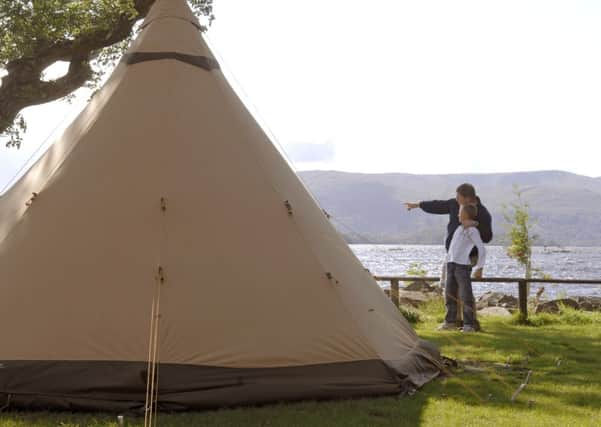Comment: Young people gaining from wilderness week


ENGAGEMENT is a word that has increasingly come to the fore of Scottish culture and more and more often, we hear media pundits talk about how young people either have been engaged or need to become more involved in some aspect of society that is the hot topic.
More than once, I have heard academics and commentators present findings that suggest young men and women are less engaged in the outdoors than generations past and that many youngsters would struggle to identify where the food on their plate comes from.
Advertisement
Hide AdAdvertisement
Hide AdYet, very rarely is attention is trained on those who do give up time and resources to ensure that young people have at least a glimpse into the wonderful opportunities available in the rural sector.
Scottish Land & Estates, which represents landowners across Scotland, recently launched a campaign called Helping It Happen, which aims to demonstrate how landowners continue to help local communities and achieve their aspirations and deliver benefits for Scotland as a whole.
One such scheme focuses on enabling young people to experience rural Scotland, with Scottish Land & Estates working in partnership with Wilderness Foundation UK, with support from Scottish Natural Heritage, Aberdeenshire Leader and others, on a project called Imbewu Scotland.
Imbewu – which means seed in Zulu and symbolises the potential for growth from small beginnings – provides a range of residential programme trails for young people aged 14 to 16 years to go onto an estate for a week as a group in order to raise their awareness of the social and environmental benefits delivered by estates. Week-long residential trails, including wilderness journeys and experiences in the most remote and beautiful parts of rural Scotland, enable those selected to grow an awareness and love of nature and the outdoors, which is part of their natural heritage.
The young people are offered places following a planned interview and selection process and are typically from urban schools, some of which lie in the lowest 15 per cent of the Scottish Index of Multiple Deprivation (SIMD). Once on the estate, they benefit from the knowledge and passion for the countryside of stalkers, ghillies and others in some of Scotland’s most remote but beautiful landscapes.
The programme focuses on personal development and encouraging leadership and the development of rural skills that could help young people to gain employment in the future. During a wild camping experience, they learn campcraft, partake in nature-based activities and have solo time for personal reflection and exploration.
Since the programme was launched in 2013, more than 80 young people from schools across Scotland have taken part and we hope the number grows.
One pupil with whom all the staff were delighted to work was Sean from Glasgow, who took part in the week-long trail at the Douglas Estate, North Lanarkshire in September. Sean attends Hollybrook Academy, a school for pupils with additional learning needs, but has worked very hard to overcome challenges such as dyslexia.
Advertisement
Hide AdAdvertisement
Hide AdAlways having wanted to work in the outdoors but with little previous opportunity to experience rural life, Sean learned about a range of employment opportunities in rural areas. The wilderness experience was an important component of the trail which included a three-day wild camping expedition led by professional guides from Wilderness Scotland.
Sean and the other participants also worked with estate staff and local volunteers taking part in conservation tasks and learning a variety of rural skills. The group made bird boxes with the team at LEAF (Local Environmental Action Force) and erected them in the woods around Douglas. Opportunities for reflection and sharing occurred throughout the trail, culminating in a presentation, attended by Lord Home, in which the group shared their experiences of the week. Sean received a John Muir Discovery Award and Leave No Trace certification in recognition of his achievements.
Sean’s interest in gamekeeping as a possible career was fuelled to the extent that he was given the opportunity to take part in work experience with the gamekeeping team at Douglas. He is now considering applying for a place at the University of the Highlands and Islands to study gamekeeping.
• Sarah-Jane Laing is director of policy and parliamentary affairs at Scottish Land & Estates